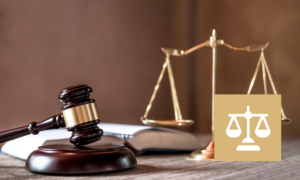The death of a loved one due to another person’s negligent actions can be devastating. Hiring a Wrongful Death Lawyer can help ensure that the responsible parties are held accountable and that family members receive financial compensation to cover expenses like lost income, funeral costs, and pain and suffering.

Wrongful death claims compensate surviving family members for financial losses suffered as a result of a loved one’s untimely passing. Although no amount of money can replace a deceased relative, a successful lawsuit can alleviate financial burdens while also demonstrating that negligent parties will be held accountable. Get in touch with Duluth Wrongful Death Lawyer for professional support.
The person who files a wrongful death claim must be either a family member or appointed by the court as a representative of the victim’s estate. Depending on the circumstances, this person may be a spouse, child, or parent. Alternatively, it could be the executor of a will or administrator of an estate.
There is a time limit within which a wrongful death claim must be filed, and your attorney will ensure that the claim is filed within this window. Typically, this means that the attorney must be ready to begin negotiations for compensation with the liable party by the end of two years following the incident that caused your loved one’s death.
An experienced wrongful death lawyer will work diligently to prove that your family’s loss was a direct result of the defendant’s action or failure to act. This includes establishing that the deceased’s relationship with the defendant was a legally established “duty” and the defendant breached this obligation. For example, a car accident victim’s lawyer would establish that the driver had a duty to exercise reasonable caution and the defendant failed in this duty.
A wrongful death lawyer will also help your family establish that the damages you seek are reasonable, including both economic and noneconomic losses. Examples of the former include medical expenses related to the victim’s final illness or injury, funeral and burial costs, and lost income. Noneconomic damages include pain and suffering, emotional distress, and the loss of a close relationship with your deceased loved one.
In some cases, your wrongful death lawyer will be able to negotiate punitive damages against the defendant, which are additional awards meant to punish particularly egregious conduct and serve as a warning to others to avoid such actions.
Damages
The loss of a family member to avoidable negligence is one of the most traumatic events a person can suffer. Wrongful Death Lawyers are dedicated to helping surviving family members receive the financial compensation they need in order to cope with their losses. Wrongful deaths can occur as a result of several types of accidents, including fatal car crashes, commercial truck collisions, construction site injuries, nursing home abuse, and medical malpractice.
A successful wrongful death claim seeks compensation for both economic and non-economic damages. The former includes costs such as funeral expenses, hospital bills, and emergency care that your loved one received before their death. It also covers the lost income that your family member would have earned had they lived, as well as the value of their services and advice that you will no longer be able to benefit from.
Intangible damages such as pain and suffering are more difficult to assign a monetary value to, but your wrongful death attorney can work with experts to ensure that the full extent of your losses are recognized. These include a victim’s pre-impact terror and the fear of impending death, as well as their conscious pain and anguish prior to the accident.
We can also pursue punitive damages in your case if the at-fault party’s actions were particularly egregious. These damages are meant to punish the defendant and deter others from engaging in similar conduct. However, your wrongful death lawsuit must prove beyond a reasonable doubt that the at-fault party engaged in reckless or gross negligence to be awarded punitive damages.
While no amount of money can fill the void left by your family member’s death, the right to financial compensation can help you recover from your losses and carry on with your life. Contact our offices today to discuss your claim with a wrongful death lawyer who will fight for the justice you deserve. We have experience handling claims arising from all types of fatal accidents. A wrongful death claim is brought by the personal representative of your deceased loved one, which is usually chosen before their death or appointed by court. the law has a two-year window for filing such a lawsuit, which starts on the date of your loved one’s death.
Statute of Limitations
The grief and stress of losing a loved one due to another person or entity’s negligence can make it hard to think about filing a wrongful death lawsuit. However, the statute of limitations dictates that you have a limited amount of time to file the case or you will be prohibited from seeking compensation. A knowledgeable wrongful death attorney can ensure that the case is filed within the appropriate timeframe and that your legal rights are protected.
The statute of limitations is a legal requirement in all cases that a claimant must bring their lawsuit within a specific amount of time after the incident. It is designed to balance the rights of plaintiffs and defendants by ensuring that cases are promptly handled so that plaintiffs don’t face long-term financial hardship while at-fault parties can be properly held accountable for their actions.
In a typical wrongful death case, the deceased victim’s survivors must prove that the defendant’s actions or inaction were the direct and proximate cause of their loved one’s untimely death. This may be done through the use of medical records, autopsy reports, expert testimony, accident reconstruction analysis, and other documentation. Survivors must also establish damages, which include both economic and non-economic losses suffered by the family. Economic damages may include funeral and burial costs, lost income, and loss of services and companionship. Non-economic damages can include emotional distress, loss of consortium, and pain and suffering.
Generally, the statute of limitations for a wrongful death claim is two years from the date of the victim’s death. However, this deadline may be extended in certain circumstances. For example, if the deceased victim’s personal representative is pursuing a criminal prosecution against a potential defendant, then the wrongful death claim can be delayed until after the conclusion of that criminal action. Similarly, if the sole beneficiary of the wrongful death claim is a minor, then law allows for the statute of limitations to be tolled until either that minor turns 18 or a legal guardian is appointed.
Statutes of limitations for wrongful death claims may also be tolled under what is known as the “discovery rule.” This exception suspends the clock on the lawsuit until the deceased victim’s family knew or should have reasonably discovered that their loved one died because of another’s negligence.
Expert Witnesses
In wrongful death cases, expert witnesses provide valuable specialized knowledge and insights to help bolster the claims of victims and their families. Wrongful death experts are typically professionals in fields relevant to the case, such as medical professionals, engineers, or economists. These experts can help establish negligence and causation in the case, as well as provide a full picture of damages to be awarded.
Whether your case goes to trial or, like over 90% of wrongful death cases, settles outside of court, an expert witness is important to the success of your claim. In addition to proving that the defendant’s actions or inactions resulted in your loved one’s untimely and preventable death, an expert will be able to explain complex technical or medical information in ways that are easy for jurors to understand.
Establishing liability in a wrongful death case is often complicated. An expert witness can help clarify complex issues and provide a voice of authority that strengthens your legal case. Expert witnesses can also provide specialized knowledge that may not be available through other sources, such as medical records, photographs or video footage of the accident scene, and witness testimonies.
The types of expert witnesses used in wrongful death cases vary, depending on the circumstances of the incident. For example, a forensic pathologist can examine the circumstances of your loved one’s death and explain how they are related to medical malpractice or negligence. Similarly, an engineer can evaluate the design or manufacturing of a product for safety risks and defects that could have contributed to the accident.
As high-authority professionals, expert witnesses can help reinforce your case’s claims and give your legal team a competitive advantage against insurance companies. When a wrongful death case involves a large amount of money, insurance companies are likely to bring in their own expert witnesses to contest fault and challenge the value of your claim. By working with an experienced Los Angeles wrongful death attorney who has access to the best experts in the industry, you can increase your chances of a successful resolution to your case.
